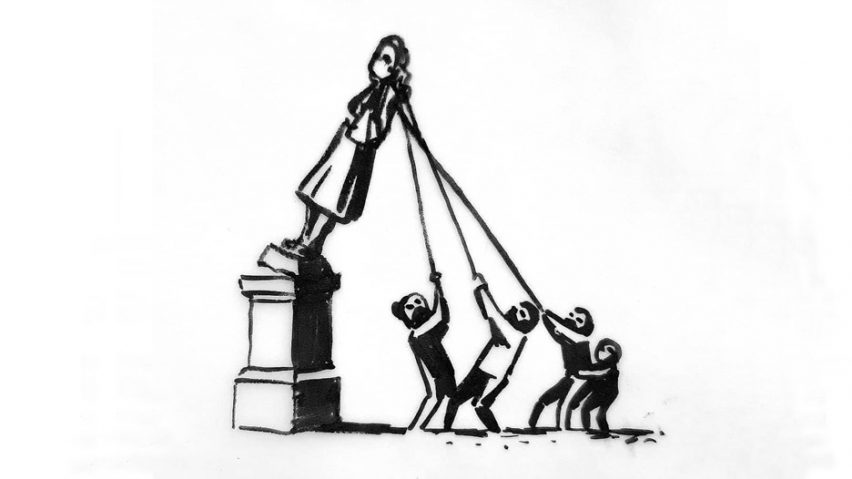Graffiti artist Banksy has created a sketch for a slavery memorial in Bristol that would incorporate slave-trader Edward Colston and the protesters who tore his statue down.
Banksy, whose identity is unknown but who is believed to come from the city of Bristol in south west England, posted his proposal on Instagram.
His sketch shows the statue of slave-trader Colston, which was torn down from its prominent position near Bristol's harbour as part of a Black Lives Matter protest on Sunday, returned to its pedestal.
However, in the drawing Colston is joined by additional statues of the protesters who tore it down, to commemorate the occasion.
"What should we do with the empty plinth in the middle of Bristol?" said Banksy on Instagram. "Here's an idea that caters for both those who miss the Colston statue and those who don't."
"A famous day commemorated"
Colston was a 17th-century slave trader who was responsible for 30,000 deaths and has many schools, streets and buildings in Bristol named after him.
Since the statue was removed there has been debate about what should happen to it, and to the empty plinth that is standing in the centre of the city.
Banksy, perhaps satirically, suggests that his proposal could make both the people who want the statue returned and those that want a new memorial happy.
"We drag him out the water, put him back on the plinth, tie cable round his neck and commission some life size bronze statues of protestors in the act of pulling him down," continued Banksy.
"Everyone happy. A famous day commemorated."
Slave trader name removed from design school
The removal of the Colston statue has led to an increased awareness of statues depicting slave traders that are on display in the UK. London mayor Sadiq Khan announced that the statues and streets in the city named after slave traders will be reviewed, while a statue of slave-trader Robert Milligan was removed from outside the Museum of London Docklands.
Also in the UK's capital, London Metropolitan University announced that it will be renaming The Sir John Cass School of Art, Architecture and Design to remove the name of John Cass, a 17th-century slave trader.
"We recognise that the use of Sir John Cass' name contributes to the redemption of a man without acknowledging the enormous pain he caused as a major figure in the early development of the slave trade, and the legacy of this pain," said Lynn Dobbs, vice-chancellor of London Metropolitan University, in a statement.

